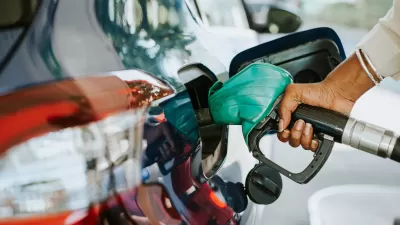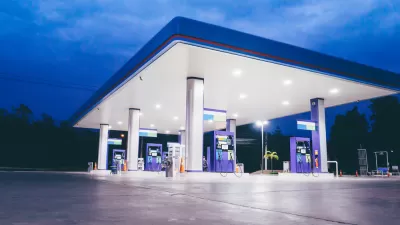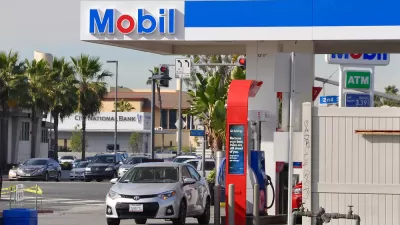The Washington Post's car columnist, Warren Brown, writes about the U.S oil addiction using insightful references to alcoholism -- describing the role of the government, the auto and oil industry, and most importantly, consumers.
"Oil fueled our ambitions and dreams. We believed in the eternity of oil, the everlasting cheapness of it...
We built suburbs with mini-mansions miles from urban work centers. We demanded idyllic neighborhoods peopled with clones of ourselves, a human selection afforded by a vast network of roads and the vehicles to drive them, all leading to and from genteel cul-de-sacs untouched by the unpredictable democracy of mass transit.
In all of this, we had enablers, politicians who supported our habit, told us not to worry, that there was more cheap oil to be found somewhere -- in another country, perhaps, if not our own. They said they would fix whatever needed fixing.
They did this in 1975 with approval of the first Corporate Average Fuel Economy (CAFE) rule mandating efficiency standards for companies selling cars and trucks in America.
The 1975 CAFE rules made driving cheaper. So we drove more, more than doubling the vehicle miles driven in the United States from 1975 through 2006, according to the Transportation Department.
We thanked our enablers for that gift and thanked them all the more because they asked us -- we voters and consumers -- to do absolutely nothing to pay for or otherwise support fuel conservation."
"It's morning after in America. We can't afford another binge. Our bacchanal affair with oil has ended"
FULL STORY: After Bingeing on Oil, the Country Has a Hangover

Manufactured Crisis: Losing the Nation’s Largest Source of Unsubsidized Affordable Housing
Manufactured housing communities have long been an affordable housing option for millions of people living in the U.S., but that affordability is disappearing rapidly. How did we get here?

Americans May Be Stuck — But Why?
Americans are moving a lot less than they once did, and that is a problem. While Yoni Applebaum, in his highly-publicized article Stuck, gets the reasons badly wrong, it's still important to ask: why are we moving so much less than before?

Research Shows More Roads = More Driving
A national study shows, once again, that increasing road supply induces additional vehicle travel, particularly over the long run.

Judge Halts Enforcement of Anti-Homeless Laws in Grants Pass
The Oregon city will be barred from enforcing two ordinances that prosecute unhoused residents until it increases capacity and accessibility at designated camping sites.

Advancing Sustainability in Los Angeles County Schools
The Los Angeles County Office of Education’s Green Schools Symposium brings together educators, students, and experts to advance sustainability in schools through innovative design, climate resilience strategies, and collaborative learning.

Using Old Oil and Gas Wells for Green Energy Storage
Penn State researchers have found that repurposing abandoned oil and gas wells for geothermal-assisted compressed-air energy storage can boost efficiency, reduce environmental risks, and support clean energy and job transitions.
Urban Design for Planners 1: Software Tools
This six-course series explores essential urban design concepts using open source software and equips planners with the tools they need to participate fully in the urban design process.
Planning for Universal Design
Learn the tools for implementing Universal Design in planning regulations.
City of Moreno Valley
Institute for Housing and Urban Development Studies (IHS)
City of Grandview
Harvard GSD Executive Education
NYU Wagner Graduate School of Public Service
City of Cambridge, Maryland
Newport County Development Council: Connect Greater Newport





























